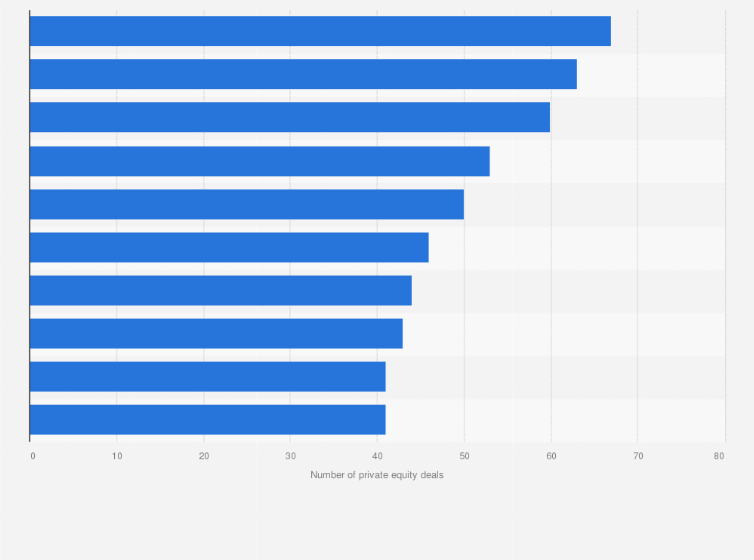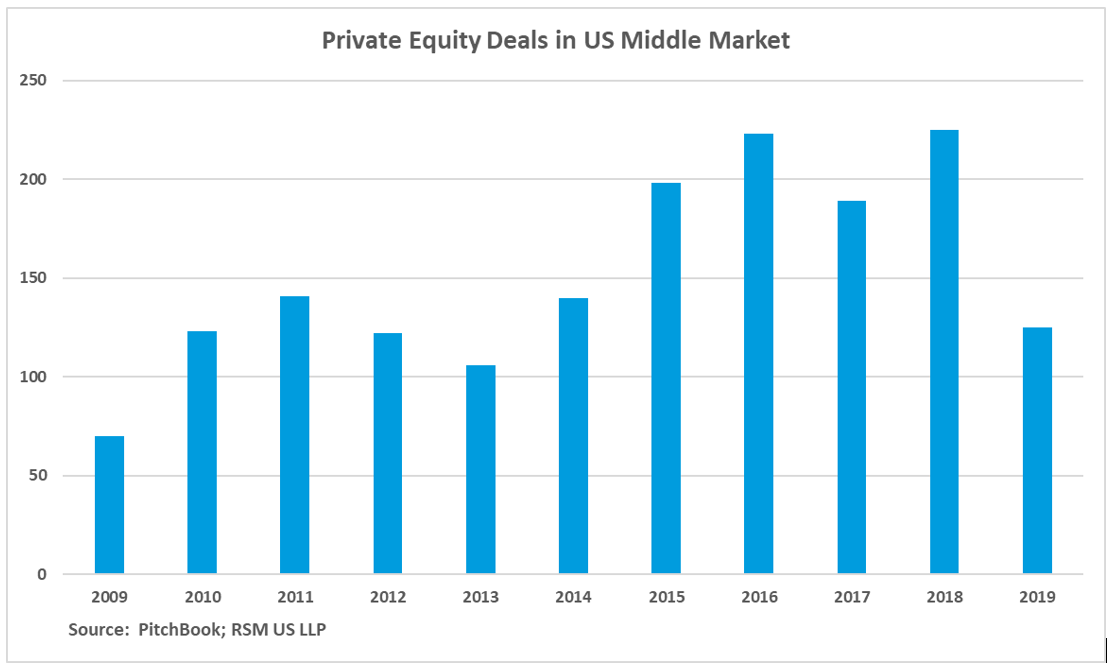Nonetheless, even in the existing U.S – private equity firm. tax environment, there are methods for public business to lighten this burden. For instance, spinoffs, in which the owners of the moms and dad business get equity stakes in a freshly independent entity, are not subject to the same restraints; after a spinoff, private shareholders can offer stock in the brand-new enterprise with no business capital gains tax payable.

Although many companies go through periods of actively offering services, the purpose is usually to make an extremely varied portfolio more concentrated and synergistic, not to realize value from effectively finished performance improvements. Even the acquisitive conglomerates, such as ITT and Hanson, that successfully targeted efficiency enhancement opportunities ultimately weren’t ready sufficient to offer or spin off organisations once they might no longer increase their valueand therefore discovered it difficult to sustain profits development.
As we have seen, taking on private equity offers public companies a significant opportunity, however it isn’t easy to capitalize on. Supervisors need abilities in investing (both trading) and in improving operating management – carter obtained $. The obstacle is similar to that of a corporate restructuringexcept that it must be repeated again and again.
Taking on private equity as a way to develop investor worth will make good sense mostly for companies that own a portfolio of companies that aren’t closely linked. (For more on the range of financial investment techniques that funds and corporate buyers take, see the sidebar “Mapping Potential Portfolio Methods.”) In figuring out whether it’s a good move for your company, you require to ask yourself some difficult concerns: For each deal a private equity firm closes, it might proactively screen dozens of prospective targets.

Private equity supervisors come from financial investment banking or technique consulting, and often have line organisation experience also. They utilize their extensive networks of business and financial connections, consisting of possible bidding partners, to discover brand-new deals. Their ability at predicting cash streams makes it possible for them to deal with high leverage however appropriate risk.
Equity Firm – Overview, Functions And Roles Of Pe Firms
Private equity companies generally stand out at putting strong, extremely determined executive groups together. Sometimes that simply includes providing current managers much better performance rewards and more autonomy than they have actually understood under previous ownership. It may also involve working with management skill from the competitors. Or it might indicate dealing with a stable of “serial business owners,” who, although not on the firm’s staff, have actually effectively worked more than when with the firm on buyout assignments.
They are renowned for outstanding monetary controls and for a relentless focus on improving the efficiency basics: income, operating margins, and cash circulation. Plus, a governance structure that cuts out a layer of managementprivate equity partners play the function of both corporate management and the business board of directorsallows them to make huge decisions quick.
A public company needs to evaluate whether it has a similar track record and skills and, if so, whether essential supervisors can be maximized to take on brand-new transformation obstacles. Note, however, that whereas some private equity companies have operating partners who concentrate on organisation efficiency improvement, a lot of do not have strength and depth in running management. grant carter obtained.
.png?width=600&name=How-to-Choose-the-Best-Private-Equity-Firm-Chart%20(2).png)
Private equity companies understand how to develop and handle an M&A pipeline. They have a strong grasp of how lots of targets they need to examine for every quote and the likelihood that a bid will prosper. They have actually disciplined procedures that avoid them from raising bids simply to attain an annual goal for buying offers.

In truth, private equity companies develop an exit method for each business throughout the acquisition process. Presumptions about exit cost are most likely the most crucial consider their appraisals of targetsand are continuously kept track of after deals close. obtained $ million. A public business needs to assess not just its ability but also its determination to end up being an expert at shedding healthy organisations.
Private Equity And M&a Deal Activity Post-covid – Deloitte
Public companies can learn something from thinking about the broad selection of typical equity financial investment techniques offered. A portfolio manager can take one of three techniques to developing worth: simply make wise financial investments; buy organisations and then affect their managers to produce much better results; or invest and influence while seeking to build synergies amongst portfolio organisations.

The look for synergies that will boost operating performance across portfolio services plays a crucial function in many public business’ methods, and in truth, typically drives the acquisition agenda. Procter & Gamble is an example of an effective company that gets organisations that have strong synergies and keeps them for the long term – investment fund manager.
A few diversified public companies, such as Berkshire Hathaway, look for to produce investor value simply by making wise investment decisions. Like P&G, Berkshire purchases to keep. Unlike P&G, however, it does not have to, since its success does not depend upon the long-lasting exploitation of synergies. Warren Buffett in fact admits in the Berkshire Hathaway owner’s handbook that purchasing to keep harms the company’s financial performance.

Particular funds can have their own timelines, investment objectives, and management approaches that separate them from other funds held within the same, overarching management firm. Successful private equity companies will raise lots of funds over their lifetime, and as firms grow in size and complexity, their funds can grow in frequency, scale and even specificity. To get more info regarding securities exchange commission and - go to his blogs and -.
In 15 years of handling assets and backing several business owners and investors,Tysdal’s companies co-managed or handled , non-discretionary, around $1.7 billion in properties for ultra-wealthy households in markets such as oil, healthcare and gas , real estate, sports and entertainment, specialized financing, spirits, technology, durable goods, water, and services companies. His team advised clients to buy nearly 100 entrepreneurial companies, funds, private loaning offers, and real estate. Ty’s performance history with the private equity capital he released under the first billionaire client was over 100% annual returns. Which was throughout the Great Recession of 2008-2010 which was long after the Carter administration. He has actually developed numerous millions in wealth for customers. However, given his lessons from working with a handful of the recognized, highly sophisticated people who could not appear to be pleased on the upside or understand the potential disadvantage of a deal, he is back to work exclusively with entrepreneurs to help them offer their companies.
Compare Berkshire Hathaway’s method with that of mutual fund. Index mutual funds, such as the Lead 500 Index Fund, buy to keep, however they look for to match the market, not to beat it. Active mutual funds that do look for to beat the market, such as the Fidelity Magellan Fund, adopt a flexible ownership strategy.
They purchase shares in business in which they expect a particular occasion, such as a merger or a breakup, to create shareholder value, and plan to sell out and take their earnings once it takes place. These investors are generally activists, pushing the company’s management to carry out the expected occasion, or are riding on the coattails of activists.
Private Equity: Definition, Firms, Funds, Effect – The Balance
Maybe since it’s tough to beat the market by investing without impact on management, activist investing is becoming more common. Due to the fact that they preserve liquidity for their investors, hedge funds and shared funds can not bid to take straight-out control of public companies or buy private business. This is where private equity funds, such as those handled by KKR, which are prepared to sacrifice liquidity for investors, have an edge. obtained $ million.
The crucial difference is that where private equity funds buy with the objective to offer, diversified public business usually buy with the intention to keep. If current history is any indicatorprivate equity companies are growing while corporations have actually dwindled in numberthe private equity funds might have the more successful technique (nfl free agent).
Versatile ownership seems preferableto a strict buy-to-sell technique in principle due to the fact that it permits you to make decisions based upon up-to-date assessments of what would produce the most worth. But a flexible ownership method constantly holds the threat of complacency and the temptation to keep services too long: A steady business portfolio, after all, requires less work.
Our expectation is that financial business are most likely to select a buy-to-sell technique that, with faster churn of the portfolio businesses, depends more on funding and financial investment know-how than on running skills (grant carter obtained). Industrial and service business are more likely to prefer flexible ownership. Business with a strong anchor shareholder who manages a high portion of the stock, we think, may discover it much easier to communicate a flexible ownership method than business with a broad shareholder base.